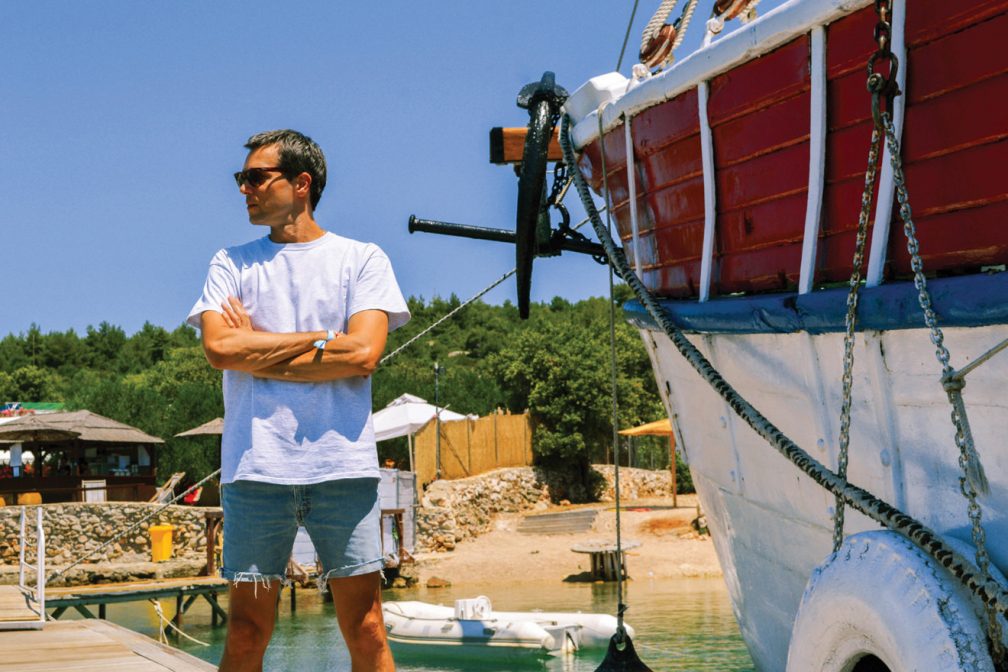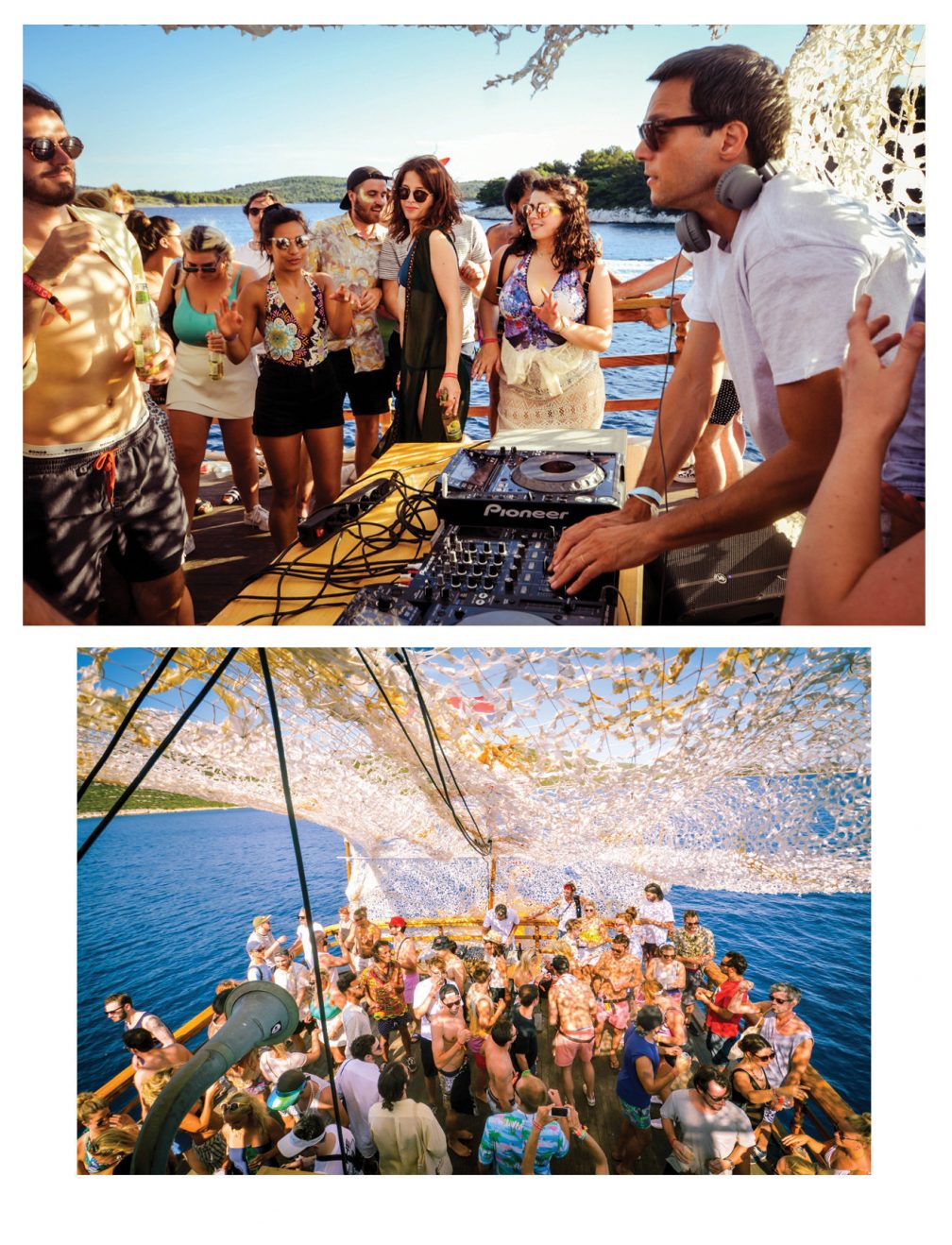 Artists
Artists
The Time Bandit: Roman Flügel
The German producer is always looking forward
“The Wall coming down in Berlin signalled the beginning of a very intense time. There was this huge DIY ethos in Germany. People were opening their own record shops, starting their own labels, their own clothing lines.” Roman approached the new world from all angles. He toured with his unofficial DJ collective, soon getting as far as the UK. “I think one of the first parties in the UK we played was at Sabresonic for Andrew Weatherall in London in ‘94 or ‘95.”
Meanwhile, from 1993 three record labels were formed out of one small Frankfurt outlet, of which Roman was to play a part, having moved to the city. “I was part of the crew that ran the Delerium Records shop in Frankfurt,” he explains. “Our labels Playhouse, Klang Elektronik and Ongaku Musik were all born and functioned out of that tiny record shop.”
The small team’s output and schedule were prodigious. He says: “Our business back then was one hundred per cent vinyl. ‘Proper’ records sold quite a lot back then, and even the experimental ones sold between a thousand and twelve hundred copies. So I think we could make records without money pressure, knowing we could at least finance the next record. And If what we made turned out to be a ‘big tune’ well, sure, it would make us all happy.”
Part of the reason for the group’s dedication to consistently pushing new material was the heartfelt belief that “this whole style of music was gonna be over in the next year or so.” It wasn’t, but their way of doing business certainly was. “At the end of the 90s we had the internet. We had Napster. We had our tracks being downloaded and we had no idea how they even got there. We lost sales continuously for five to six years. Our distribution partners went under. We simply weren’t prepared.”
There’s no diatribe on the death of vinyl and no discussion of the way music continues to grow while producers lose money, however hard Mixmag pokes at the enigmatic yet friendly figure in front of us. “The internet will be remembered as our generation’s industrial revolution,” he says, with the same signature nod and amused shrug. Time changes. That’s the point. For better. For worse.
The concept of time plays through Roman’s own production as well. As he says: “The best music should sound like it’s out of time – like it’s from any and yet no time period at all. That’s why I liked both Bowie and Prince so much.” As for his own albums, his 2014 record ‘Happiness Is Happening’ was, he says, all about “a connection I felt between electronic music and the sounds and themes happening in Germany through the 1970s. The whole project was an attempt to look back and try to reinterpret all that energy.”

Normally, that would all strictly be against his own personal philosophy of simply never looking backwards. “Electronic music is like painting,” he declares. “You can only reference what you’ve already experienced. But you must interpret it differently.
At least, that’s the plan.” Perhaps a forthcoming 12” based on nothing but a 16-step sequencer on a friend’s experimental label in Frankfurt is penance, then. At any rate his new album, due at the end of October, is much tighter to his principles. Sparse, at times unnerving and at times warm and enveloping, it’s a record that manages to simultaneously sound completely of the moment while still referencing key electronic music touchstones such as Kraftwerk and ambient synth music. Or as he puts it: “Less and less notes I would say. Less notes, more connections between what’s there, a deeper resonance –
without thinking about any of it.”
It sounds contradictory, but watching Roman put his principles into practice on the main stage, something esoteric does click. Opening with ‘Your Love Away’ by Massimiliano Pagliara before drifting through sequences of French disco, US house, injections of techno and Midland’s ‘Vigilante’, the underlying theme was joined melodies, rather than a house set’s tempo or a techno workout’s riser and hi-hat assault course. The glitterball, main floor and the dress sense below it all could have been taken from the 70s. Glitter and large bushes are everywhere. It’s a syncretic fit with the nu-disco, heatstroke and euphoria of Love International.
14 hours later, Mixmag is on a Hypercolour boat party with Flügel and A Sagittariun. “I still get a bit nervous before my sets. Especially when it’s such a good vibe on the warm up.” Roman is yelling over the Funktion One system (yes, on a boat) with a bottle of prosecco in one hand. Dressed in cut-off jeans and a white T-shirt; he looks like a cross between a Berlin cafe owner and a Canadian summer camp volunteer. He opens his set with ‘Dresscode’ by DJ Jenifa, his shoulders rolling while his head remains down, looking for the next stage, the next step, the next genre switch. And all of the time, there’s a slightly distant and distracted expression on his face.


